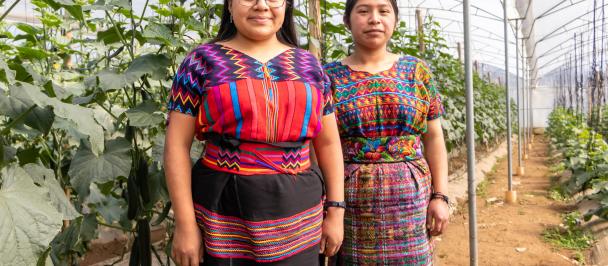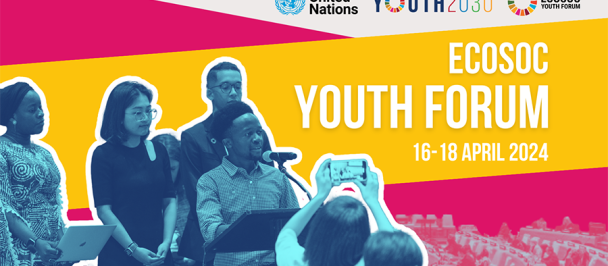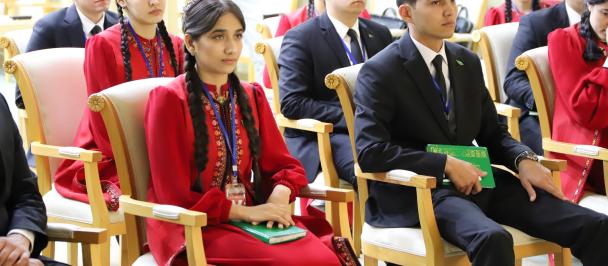Recognising that young people play a crucial role as key architects of the future of our planet, the 2019 Future Policy Award will celebrate policies that advance economic empowerment of young women and men in decent and sustainable jobs, and youth civic engagement and political participation in support of sustainable development and peace. This year’s award is organised by the World Future Council, the Inter-Parliamentary Union (IPU) and the United Nations Development Programme (UNDP).
New York, Sept 10 – In 2019, the Future Policy Award will highlight the world’s most impactful policies that advance youth access to decent jobs, including green jobs, and enhance civic and political participation for sustainable development and peace. The Award will commend laws, policies and legal frameworks that enable young people to develop their full potential, realize their dreams, and contribute to the success of Agenda 2030 and the Sustainable Development Goals. Recognizing the challenges of unemployment and lack of political participation of youth, it is key to empower young people and this can have a tremendous impact on sustainable development.
In total, 67 policies from 36 countries, regional and international level were nominated. An international expert jury convened to deliberate on the top candidates. The following eight countries have been shortlisted as the most impactful policies in empowering young people:
Estonia: Youth Field Development Plan
Europe: Co-Management of the Youth Sector of the Council of Europe
Nepal: Constitution
Rwanda: YouthConnekt Initiative
United Kingdom, Scotland: Developing the Young Workforce
Senegal: National Strategy for the Promotion of Green Jobs
South Africa: Expanded Public Works Programme
United States, Los Angeles: Green New Deal
With their holistic approach and impressive impact, these eight legal frameworks and policies create enabling environments for youth empowerment, help achieve the ambitions of the 2030 Agenda and contribute directly to multiple Sustainable Development Goals. They advance youth access to decent and sustainable jobs, and enhance their civic and political participation for sustainable development and peace.
Winners of this year’s Future Policy Award will be announced on 15th October 2019 and celebrated during the 141st Assembly of the Inter-Parliamentary Union held on 16th October 2019 in Belgrade, Serbia.
The Future Policy Award 2019 is organised by the World Future Council, the Inter-Parliamentary Union (IPU) and the United Nations Development Programme (UNDP), with the support of the Office of the UN Secretary-General’s Envoy on Youth, the International Labour Organisation (ILO), Michael Otto Foundation and Jua Foundation.
“The Future Policy Award showcases innovative ways to break down barriers in critical areas like youth unemployment and help set free the massive talents of young women and men," says Achim Steiner, UNDP Administrator and Vice-Chair of the UN Sustainable Development Group. "Crucially, shining a light on these exceptional youth initiatives can allow them to be translated to other country contexts - thus helping to drive forward sustainable development."
“Half the world's population is under thirty, but only 2 per cent of MPs are in that age group," says Martin Chungong, IPU Secretary General. "One of the IPU’s key objectives is to empower youth by getting more young people into parliament to ensure stronger, more representative, and future-looking democratic institutions. These shortlisted laws and policies show that there are many great initiatives all over the world that can serve as examples for other countries to harness the potential of youth.”
“Interconnected challenges - unemployment, conflicts, the climate crisis - threaten our environment, human well-being and the future of our youth. We must act before it is too late. But there is hope: these eight policy solutions show how we can effectively transform our societal and political systems to best support youth as powerful agents of change. The World Future Council is looking forward to celebrating these best policies advancing youth empowerment in the interest of present and future generations, and to sharing their success stories. We all can – and should – learn from them,’’ says Alexandra Wandel, Executive Director of the World Future Council.
Please see the shortlisted policies here
About the Future Policy Award 2019: More information about this year’s Future Policy Award is available at: https://www.worldfuturecouncil.org/future-policy-award-2019-empower-young-people-2/
Follow the 2019 Future Policy Award on Twitter with #FuturePolicyAward and #FPA2019
About the organizers/convening partners
The World Future Council
The World Future Council brings the interests of future generations to the centre of law and policy making. The Council consists of 50 eminent global change-makers from governments, parliaments, the arts, civil society, academia and business. Together they form a voice for the rights of future generations. The Council addresses challenges to our common future and identifies and promotes effective legislative and policy solutions among decision makers. www.worldfuturecouncil.org
The Inter-Parliamentary Union (IPU)
The Inter-Parliamentary Union (IPU) is the world's organisation of parliaments. It was founded in 1889 as the first multilateral political organisation, encouraging cooperation and dialogue between all nations. Today, IPU comprises 179 national parliaments and 12 associate members. It empowers youth by supporting parliaments to better provide access to youth to political decision-making, and include a youth perspective in legislation and policies. We build capacities of young MPs and provide platforms for them to coordinate actions at the global, regional and national levels. We also monitor youth representation in parliaments and issue policy and legislative guidance to boost it. https://www.ipu.org/
The United Nations Development Programme (UNDP)
UNDP partners with people at all levels of society to help build nations that can withstand crisis, and drive and sustain the kind of growth that improves the quality of life for everyone. On the ground in nearly 170 countries and territories, we offer global perspective and local insight to help empower lives and build resilient nations. UNDP recognizes, supports and promotes the role of young women and men as agents of change and has implemented its first-ever UNDP Youth Global Programme since 2016. https://www.undp.org
Supporting Partners
United Nations Secretary-General's Envoy on Youth
The UN Secretary-General's Envoy on Youth serves as a global advocate for addressing the needs and rights of young people. The Envoy on Youth's Office is part of the United Nations Secretariat and has been tasked by the Secretary-General to lead the development and implementation of Youth 2030, the United Nations Strategy on Youth in conjunction with the UN system and young people themselves. Youth 2030 was launched by the Secretary-General in September 2018 with the aim of scaling up global, regional and national actions to meet young people’s needs, realise their rights and tap their possibilities as agents of Change. The office also promotes the empowerment and foster the leadership of youth at the national, regional, and global levels, including through exploring and encourages mechanisms for young people’s participation in the work of the United Nations’s family and in political and economic processes with a special focus on the most marginalized and vulnerable youth. https://www.un.org/youthenvoy/
The International Labour Organization (ILO)
The International Labour Organization (ILO) is the United Nations' Agency for the world of work. It sets international labour standards, promotes rights at work and encourages decent employment opportunities, the enhancement of social protection and the strengthening of dialogue on work-related issues. The ILO was founded in 1919, in the wake of a destructive war, to pursue a vision based on the premise that universal, lasting peace can be established only if it is based on social justice. The only tripartite U.N. agency, the ILO brings together governments, employers and workers of 187 member States, to set labour standards, develop policies and devise programmes promoting decent work for all women and men. www.ilo.org
Youth Policy Labs
Youth Policy Labs is the leading global think-tank specifically focusing on youth and is hosted by the Berlin-based NGO Demokratie & Dialog e.V. We operate at the junction of research and journalism, producing high-quality and well-researched knowledge with the aim of improving public policies that affect the lives of young people. We champion the development of youth policies, promote young people as researchers, facilitate international discussion on youth policies, and advocate for stronger coherence within the United Nations and donor agencies on youth rights, policies and programmes. Our team is made up of youth policy experts, youth researchers, and young journalists. Our publications are published under Youth Policy Press, a global publishing house on youth issues. http://www.youthpolicy.org/
With special thanks to the Michael Otto Foundation and the Jua Foundation.
Media contacts:
World Future Council
Samia Kassid, Senior Project Manager, The Rights of Children and Youth
Phone: +49 (0)40 307 09 14 18
samia.kassid@worldfuturecouncil.org; media@worldfuturecouncil.org
Inter-Parliamentary Union (IPU)
Thomas Fitzsimons, Director of Communications
Phone: +41 (0)79 854 31 53
tf@ipu.org
United Nations Development Programme (UNDP)
Sangita Khadka, Communications Specialist - Bureau for Policy and Programme Support
Tel.: +1 212 906 5043
Sangita.khadka@undp.org

 Locations
Locations

